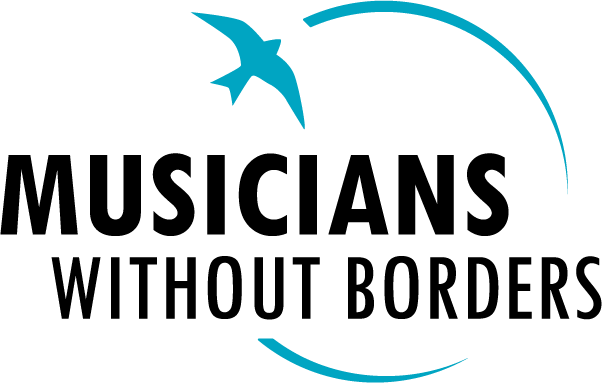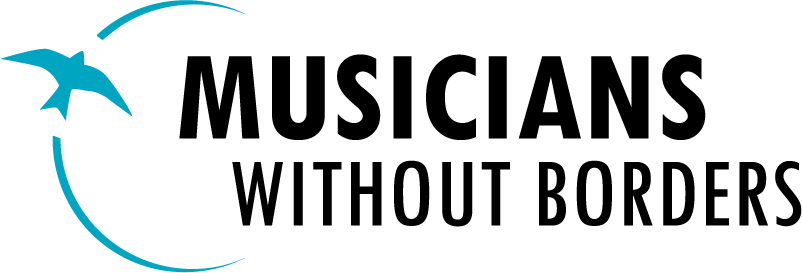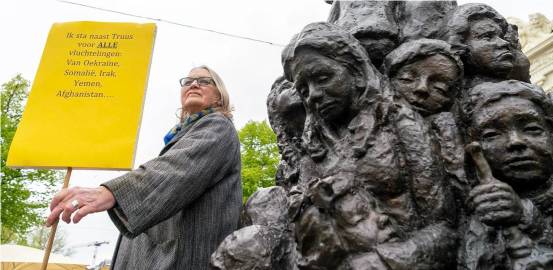This blog was written by our director, Laura Hassler.
Alkmaar, a medium sized city in the Netherlands, known to the tourists for its cheesemarket. Known to Dutch historians for the first victory against Spanish occupiers in the 16th century’s 80-year war. Known to church organists for the monumental van Hagerbeer/Schnitger pipe organ in its Grote Kerk, the city’s old cathedral. Known to soccer fans worldwide for AZ.
I live in Alkmaar.
A new association wants our city also to be known as the birthplace of a courageous woman, who rescued more than 10,000 Jewish children from the Nazis. They’ve commissioned and placed a sculpture honoring her, designated a special Dutch tulip to bear her name, started a pop-up museum about her work, created an educational program for school children, and instituted a bi-annual award in her name.
Her name is Truus Wijsmuller-Meijer, and a few weeks ago, I was honored with the first Truus Wijsmuller-Meijer award for my work with Musicians Without Borders.
Truus was the kind of fierce, fearless woman that I’ve always wanted to be, but am not. She was hard-headed, stubborn, and determined in a way that must have met much more resistance in the 1930s than it would now. She traveled alone to Vienna in 1938, negotiated with Eichmann himself, persuaded and cajoled when possible, lied and bluffed when needed, rode trains and buses with escaping children, bombs exploding around them, got the children onto ships to safety in England. She was known as someone who could not be refused, and hearing a recording of her voice, I know that I too would have said yes to anything she asked.
So, in the weeks before the award ceremony, I tried to get to know her, tried to understand the link between her work and mine, her life and mine, and what her meaning and message for our time might be.
The same week of the Truus Wijsmuller-Meijer award ceremony in Alkmaar, the Dutch asylum reception center’s tent-camp in another city was closed by authorities as inhumanely overcrowded and unsanitary. For more than a decade, the Netherlands has maintained a policy of ‘discouragement’ towards asylum seekers, and that week, the steadily defunded and stripped Dutch refugee authority begged unwilling cities to offer space for the 700 children, women, and men, who after traumatic journeys, suddenly found themselves unhoused, again. My city, Alkmaar, agreed to take 100 people and shelter them in a sports hall–for one week. After that, where would they go? No one knew. Like most Dutch cities, Alkmaar is not enthusiastic about taking in refugees and asylum seekers. In the Netherlands, the fearmongers and scapegoaters have done their work. Even as Europe once again experiences a horrific war on its own continent, and Ukrainian refugees are welcomed with open arms, Black and Brown refugees from all those other wars–Afghanistan, Yemen, Syria, Somalia, Libya, Iraq–are to be ‘discouraged’.
If she had lived in Alkmaar today, what would Truus have done?
And, with my own full-time international work–but also as a woman who lives in this city of Alkmaar, this city of Truus–what can I do?
Sometimes, the best you can do is just to show up, and I decided to show up every week, and stand next to the statue of Truus and ‘her’ children. Every Friday at 12 noon, in the midst of Alkmaar’s famous cheese market, I stand next to Truus with a sign, on behalf of today’s unwanted children, and I ask my city, Alkmaar, to take them in.

Every week, more people join: others who care about this, friends, musicians, artists. We hold our signs and talk with tourists and with Alkmaar people. We think about a weekly pop-up podium and flash mobs and press attention and interventions at city council meetings.
Working for so many years with people and communities around the world for all those things that are the basic human rights of all children, of all humans–for a life of safety, connection, just, equal, peaceful societies, I am brought back to my own town by another woman’s story and reminded that the global has also become local, everywhere.
Friday, 12.00: I stand with Truus.






